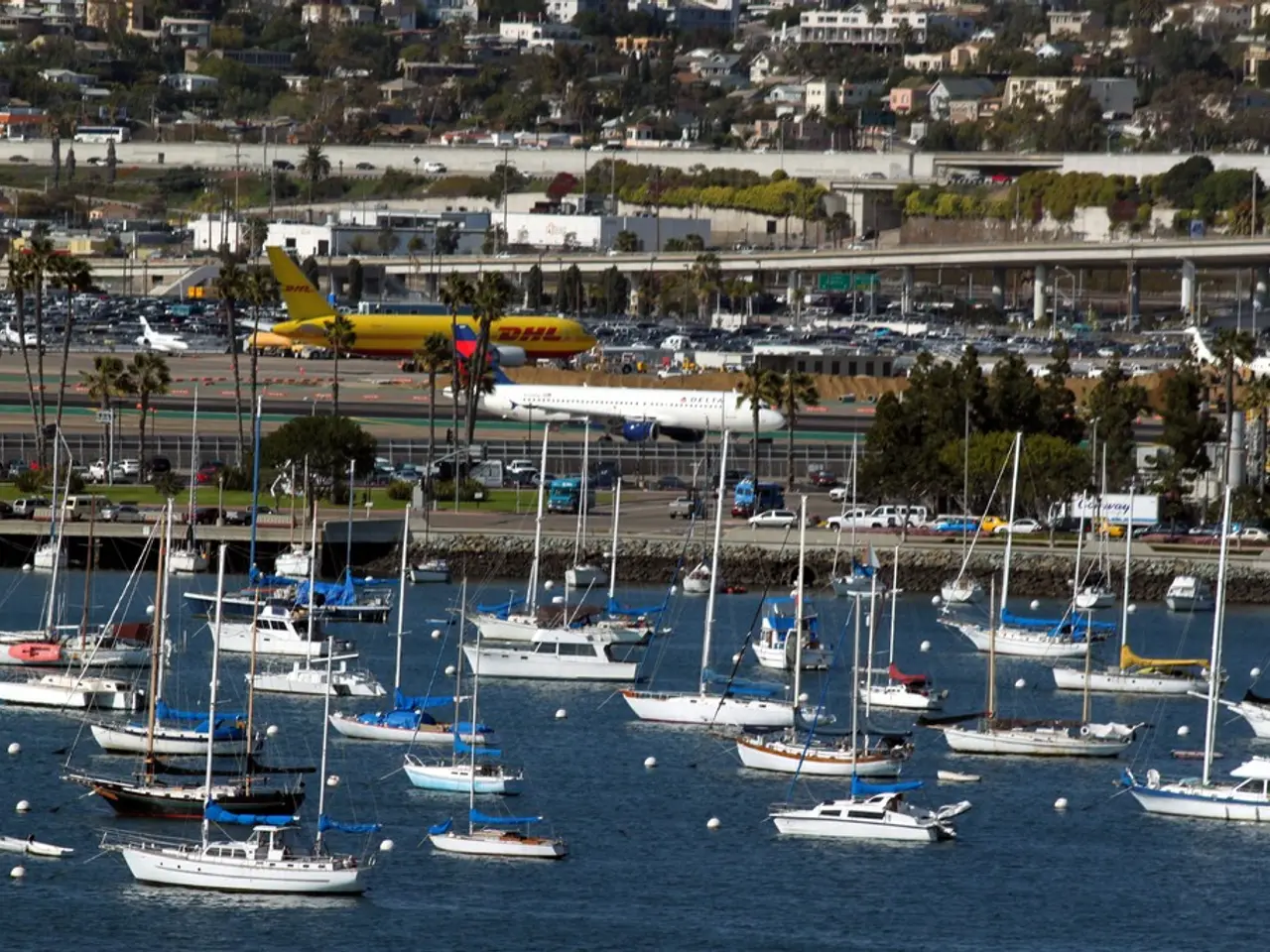Enhancing Ocean Safety Measures
Airbus Tackles Maritime Challenges with Innovative Solutions
In the face of escalating maritime challenges, Airbus is stepping up to the plate with innovative solutions that address geopolitical tensions, tightening environmental regulations, cybersecurity threats, and trade policy shifts.
Maritime Challenges
The current maritime landscape is fraught with difficulties. Geopolitical instability, such as conflicts and ideological differences among major powers, disrupt supply chains and increase operational challenges and costs. Stricter environmental rules, including the EU’s expanding ETS surcharge for maritime emissions and IMO’s mandatory use of lower-GHG fuels, pressure the industry to adopt greener practices, raising costs. Cybersecurity risks have escalated with the adoption of smart ship and port technologies, exposing critical systems to attacks that could disrupt navigation and logistics. Additionally, shifting trade agreements and tariffs cause rerouting and strategic shifts in shipping routes and operations.
Airbus' Role
Airbus, a significant player in the maritime industry, is indirectly involved in addressing these challenges primarily through its role in the aerospace supply chain, which is closely linked to global maritime logistics. Airbus faces significant supply chain vulnerabilities, including engine shortages and shipment delays caused partly by disruptions in global shipping routes. The company manages these challenges by focusing on supply chain resilience, operational flexibility, and strategic foresight to maintain production targets despite these external maritime logistics pressures.
Innovative Solutions
One of Airbus' innovative solutions is the Zephyr, a high-altitude pseudo-satellite (HAPS) positioned in the stratosphere. Capable of flying for months at a time, Zephyr combines the presence of a satellite with a UAV's payloads for global surveillance. This integration falls under the category of C4ISR (command, control, communications, computers, intelligence, surveillance, and reconnaissance).
Airbus' maritime offerings also include the C295 aircraft, Coastal Surveillance Systems with STYRIS, AS565 Mbe and NH90 helicopters, Aliaca drones, and communication networks and equipment like the SCOT MilSatCom terminals. The A320M3A is expected to fulfill a range of C4ISR functions and technical roles such as maritime patrol and anti-submarine warfare.
The H160M HIL, a modular and versatile multi-role aircraft, is being introduced for navies in surveillance and interception missions based in frigates. The VSR700 UAS extends the visual range and reach of corvettes and larger warships, providing capabilities for missions from anti-surface warfare to search and rescue.
Example Use Case
An example of the usefulness of this integrated system could be alerting two small craft on a collision course near Corsica, preventing a potential disaster.
Significance of Maritime Trade
The world's oceangoing trade is significant, with 80% of global goods transported via shipping. This makes it crucial to have reliable and efficient maritime solutions to ensure the smooth flow of goods and services.
The United Nations' report on global climate change predicts an increase in hurricane- and typhoon-related emergencies in the next 10 to 20 years. With Airbus' innovative solutions, we can expect a more resilient maritime industry that is better equipped to face these challenges.
- The maritime industry, under pressure from geopolitical tensions, tightening environmental regulations, cybersecurity threats, and trade policy shifts, is being addressed by Airbus through innovative solutions like the Zephyr, a high-altitude pseudo-satellite for global surveillance.
- Airbus, a key player in the aerospace supply chain, indirectly contributes to maritime solutions by focusing on supply chain resilience, operational flexibility, and strategic foresight to counter external maritime logistics pressures.
- In addition to the Zephyr, Airbus provides various maritime offerings including the C295 aircraft, Coastal Surveillance Systems, helicopters, drones, and communication networks for functions such as maritime patrol, anti-submarine warfare, and search and rescue.
- An example of the utility of these integrated systems is the prevention of potential maritime disasters, like alerting two small craft on a collision course near Corsica.
- With 80% of global goods transported via shipping, having reliable and efficient maritime solutions is essential to ensure the smooth flow of goods and services.
- The United Nations' report on global climate change predicts an increase in hurricane- and typhoon-related emergencies. With Airbus' innovative solutions, we can expect a more resilient maritime industry prepared to face these challenges.
- The significance of maritime trade extends beyond economic aspects, touching upon general news, education and self-development, politics, travel, crime and justice, sports, data and cloud computing, and the environment and environmental science.




